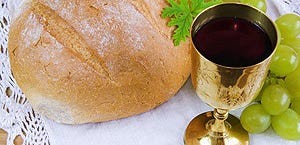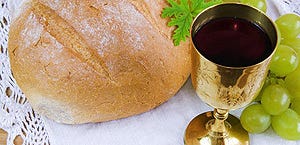Was Ezra’s sermon the essence of the worship service?


I very much appreciated Albert Mohler’s defense of preaching over against “drama” and other… stuff passing itself as worship.
But I would have liked Mohler to define the music problem more clearly: churches are moving from congregational singing to passive congregational sitting in the face of professional singing. The Reformers did a great deal to promote (virtually re-invent) congregational singing. The debate over exclusive Psalmody only makes sense as a consequence of this strong push earlier in history. Mohler is plainly (and rightly!) concerned with the loss of this Biblical heritage:
In terms of musical style, the more traditional churches feature large choirs—often with orchestras—and may even sing the established hymns of the faith. Choral contributions are often massive in scale and professional in quality. In any event, music fills the space and drives the energy of the worship service. Intense planning, financial investment, and priority of preparation are focused on the musical dimensions of worship. Professional staff and an army of volunteers spend much of the week in rehearsals and practice sessions.
At the same time, I’m not sure Mohler grasps the real problem in all this. It is not just that congregations divide over style, it is that they were never supposed to be relegated to the role of art critics to begin with. They are supposed to all be singing to God. God is the audience; they are the choir.
I also don’t think Mohler is helping himself to portray the Reformer’s work on worship as mainly the recovery of expository Biblical preaching. (He makes some concessive statements about Luther and music that, frankly, we would do well to use as a basis for seminary reform). As I said, they spent time and energy reforming worship by demanding and encouraging congregational singing. Most of them used structured liturgies as well.
This brings me to Mohler’s thesis and his Biblical proof:
Expository preaching is central, irreducible, and nonnegotiable to the Bible’s mission of authentic worship that pleases God. John Stott’s simple declaration states the issue boldly: “Preaching is indispensable to Christianity.” More specifically, preaching is indispensable to Christian worship—and not only indispensable, but central.
The centrality of preaching is the theme of both testaments of Scripture. In Nehemiah 8 we find the people demanding that Ezra the scribe bring the book of the law to the assembly. Ezra and his colleagues stand on a raised platform and read from the book. When he opens the book to read, the assembly rises to its feet in honor of the word of God and respond, “Amen, Amen!”
This is a fascinating argument from a passage about the recovery of the Feast of Booths. The preaching is preparation for a holy feast day:
And Nehemiah, who was the governor, and Ezra the priest and scribe, and the Levites who taught the people said to all the people, “This day is holy to the Lord your God; do not mourn or weep.” For all the people wept as they heard the words of the Law. Then he said to them, “Go your way. Eat the fat and drink sweet wine and send portions to anyone who has nothing ready, for this day is holy to our Lord. And do not be grieved, for the joy of the Lord is your strength.” So the Levites calmed all the people, saying, “Be quiet, for this day is holy; do not be grieved.” And all the people went their way to eat and drink and to send portions and to make great rejoicing, because they had understood the words that were declared to them. (Nehemiah 8:9-12, ESV)
Pretty amazing. The people were rebuked for weeping over their guilt and told to go enjoy food and share it with others. I definitely agree this is an excellent passage to use to reform and correct our worship. But I don’t see anything like what Mohler argues from it. Rather than the exposition of the Word as essence of worship, we see word and sacramental meal go together.
Remember, when Adam and Eve sinned they were banished from God’s special food. Later, however, when God re-built the garden, as it were, as the Tabernacle, eating near God’s sanctuary became possible once again.
Thus, we find directions on tithing:
“You shall tithe all the yield of your seed that comes from the field year by year. And before the Lord your God, in the place that he will choose, to make his name dwell there, you shall eat the tithe of your grain, of your wine, and of your oil, and the firstborn of your herd and flock, that you may learn to fear the Lord your God always. And if the way is too long for you, so that you are not able to carry the tithe, when the Lord your God blesses you, because the place is too far from you, which the Lord your God chooses, to set his name there, then you shall turn it into money and bind up the money in your hand and go to the place that the Lord your God chooses and spend the money for whatever you desire—oxen or sheep or wine or strong drink, whatever your appetite craves. And you shall eat there before the Lord your God and rejoice, you and your household. And you shall not neglect the Levite who is within your towns, for he has no portion or inheritance with you. (Deuteronomy 14:22-27, ESV)
Again, read these descriptions of worship and ask yourself how much expository preaching is made the essence of worship:
“You shall count seven weeks. Begin to count the seven weeks from the time the sickle is first put to the standing grain. Then you shall keep the Feast of Weeks to the Lord your God with the tribute of a freewill offering from your hand, which you shall give as the Lord your God blesses you. And you shall rejoice before the Lord your God, you and your son and your daughter, your male servant and your female servant, the Levite who is within your towns, the sojourner, the fatherless, and the widow who are among you, at the place that the Lord your God will choose, to make his name dwell there. You shall remember that you were a slave in Egypt; and you shall be careful to observe these statutes.
“You shall keep the Feast of Booths seven days, when you have gathered in the produce from your threshing floor and your winepress. You shall rejoice in your feast, you and your son and your daughter, your male servant and your female servant, the Levite, the sojourner, the fatherless, and the widow who are within your towns. For seven days you shall keep the feast to the Lord your God at the place that the Lord will choose, because the Lord your God will bless you in all your produce and in all the work of your hands, so that you will be altogether joyful.
“Three times a year all your males shall appear before the Lord your God at the place that he will choose: at the Feast of Unleavened Bread, at the Feast of Weeks, and at the Feast of Booths. They shall not appear before the Lord empty-handed. Every man shall give as he is able, according to the blessing of the Lord your God that he has given you. (Deuteronomy 16:9-17, ESV)
For these and many other reasons, both from the Bible and also from the Reformers, I predict that, until Mohler calls for the re-discovery of the Reformation campaign for weekly communion, so that Biblical sermon and Lord’s Supper are the regular and expected practices at the center of Evangelical worship, people aren’t going to find his Biblical or historical arguments all that compelling.<>разработка и поддержка ов киевстоимость рекламной акции
The post Was Ezra’s sermon the essence of the worship service? appeared first on Kuyperian Commentary.

